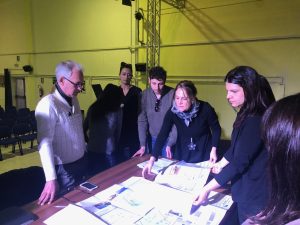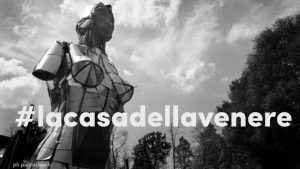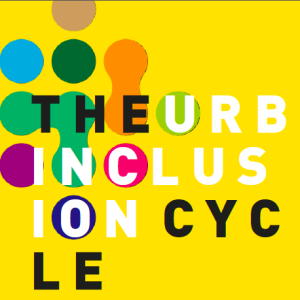On January 24th we had the pleasure of visiting the city of Lucca, one of the pilot cities of the IN-HABIT project. In this project Tesserae leads the work dedicated to the engagement of local stakeholders in the four local Private Public People Partnerships, and to support the cities in the co-design of the integrated solutions.

After more than a year of online collaboration we finally had the chance to get to know the interventions that are being realized in the territory, as well as to meet the local team in person and some of our project partners (Comune di Lucca, Lucca Crea, Università di Pisa, University Of Reading and Book on a Tree).

We started our site visit by exploring the areas in which the animal-lines (Animabili) of Lucca will be realised – a series of green corridors connecting diverse nodes of the periphery of the city with each other as well as with the historical centre. This intervention is aimed at activating the immensely rich cultural heritage of the city and promoting the interdependence of humans and animals to increase their wellbeing.


After the exploration, the group gathered in the Real Collegio di Lucca to discuss the advancements of the project and to share the experiences and knowledge of the project partners. The local team provided an overview of the current state of the project, that was complemented by the input of the transversal partners.

Members of the city administration provided key inputs to understand the history of the city and how the project is embedded into wider municipal plans, and members of the core group of the IN-HUB – the governing mechanism of the participative process – shared their reflections on how the participative process is developing and what should be the next steps in terms of the engagement of the wider population. The Mayor of the city, Alessandro Tambellini, joined and provided us with a fascinating insight on the history of Lucca and how the theme of the human-animal relation is deeply entrenched in urban-rural connections and the related settlement models and local culture. Valeria Giglioli, delegate for social policy, and Ilaria Vietina, delegate for educational policies, gender and historical memory, also joined us, introducing the many policy programs and actions of the city that offer synergies with the INHABIT project and represent opportunities for collaboration and stakeholder engagement.



In general, the meeting was very inspiring and provided an opportunity both to appreciate the great work that the local team is doing in the field at Lucca, and to accelerate the peer learning and planning essential to the project. We cannot wait to come back to Lucca with our animal companions and we wish the best of luck to our colleagues for the coming months!



